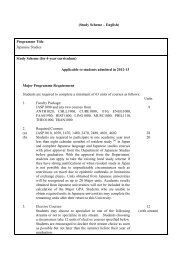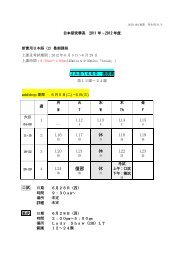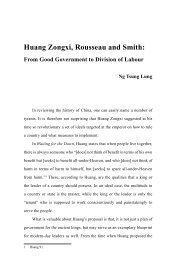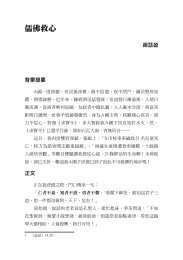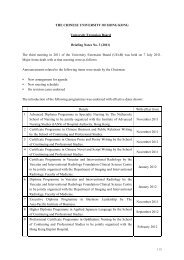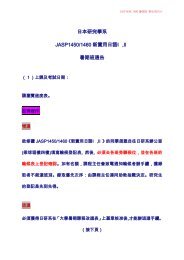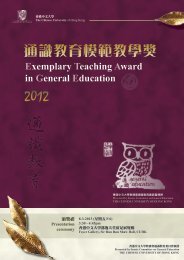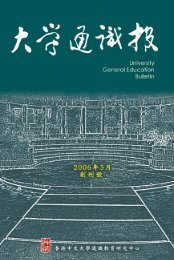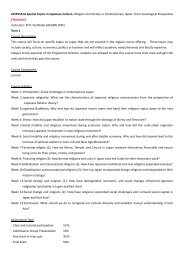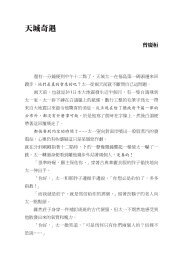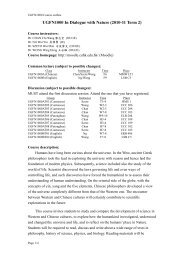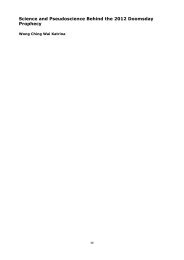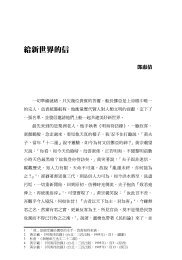ä¸è¼å ¨æ¸ - The Chinese University of Hong Kong
ä¸è¼å ¨æ¸ - The Chinese University of Hong Kong
ä¸è¼å ¨æ¸ - The Chinese University of Hong Kong
You also want an ePaper? Increase the reach of your titles
YUMPU automatically turns print PDFs into web optimized ePapers that Google loves.
34 Special Topic: Assessment in <strong>University</strong> General Education Program<br />
ethics. <strong>The</strong> students had systematically moved from a role <strong>of</strong> “receiving”<br />
information (level 1 in the Krathwohl et al. taxonomy), to “responding” or<br />
even “valuing” (levels 2 and 3) through the design <strong>of</strong> the course activities.<br />
Weekly classroom discussions, written reactions to symposium speakers, and<br />
occasional lectures supplemented the public symposia as TLAs designed to<br />
align with the intended affective learning outcome.<br />
Assessment <strong>of</strong> Affective Learning<br />
We decided to use three distinctly different mechanisms to assess the<br />
students’ achievement <strong>of</strong> the affective ILO, “to examine relationships between<br />
codes <strong>of</strong> ethics and individual ethical behavior.” First, the students practiced<br />
examining relationships between codes <strong>of</strong> ethics and individual ethical<br />
behavior through Blackboard discussion board assignments following each<br />
<strong>of</strong> the four symposia. Classroom discussions that were held following the<br />
submission <strong>of</strong> these online assignments provided the students with feedback<br />
about their analyses and alternative points <strong>of</strong> view. Second, the students’<br />
ability to achieve the affective ILO was assessed through an oral, group<br />
format final examination. This examination involved teams <strong>of</strong> six students<br />
being presented with a novel case study in which they were asked to analyze<br />
and discuss complex ethical issues from the multiplicity <strong>of</strong> perspectives that<br />
they had been exposed to throughout the semester. We developed a scoring<br />
rubric for this activity, which included faculty ratings <strong>of</strong> each student on their<br />
“ability to negotiate roles among one another and make consensus judgments<br />
as a group,” as well as their “knowledge <strong>of</strong> course material, specifically the<br />
four components <strong>of</strong> ethical behavior development” and their “ability to apply<br />
the theory to the individuals within the case study.” In sum, the faculty ratings



